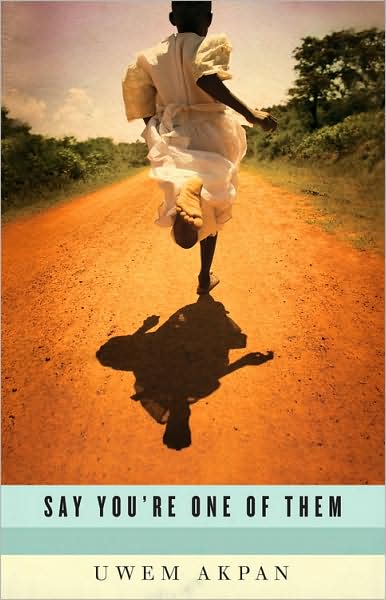
I started this month by reading The Help, which I picked up after last month's book club because Kelsi read it and loved it. I read all 464 pages in about five days, it was that good! I felt so connected to the characters and I just could not put it down. The Help, by Kathryn Stockett, tells the story of African American house maids living in the 1950s in Jackson, Mississippi. The maids, or as they are otherwise called, "the help", band together to write a collection of stories about what their jobs are actually like. The author, who was raised by her black maid in Mississippi as a young girl, does a fabulous job of managing character development with an intriguing tale.
Historical fiction is definitely one of my favorite genres and ever since reading Walking With the Wind: A Memoir of the Movement in high school, I just cannot get enough of reading about the 1950s and 1960s in America. In summary, I highly recommend this book, and already have told many friends about it. I definitely think its going to be one of those books that makes the rounds to our entire group!
Historical fiction is definitely one of my favorite genres and ever since reading Walking With the Wind: A Memoir of the Movement in high school, I just cannot get enough of reading about the 1950s and 1960s in America. In summary, I highly recommend this book, and already have told many friends about it. I definitely think its going to be one of those books that makes the rounds to our entire group!

After a quick break from the serious topics to read a chic lit book that was so ridiculously bad I cannot bear to discuss it, I finished this month off with Uwem Akpan's Say You're One of Them as recommended by my friend Catie. This book is the collection of five short stories told through the eyes of children in Africa. The stories are not all universal in length, which was upsetting at times because I enjoyed certain characters more than others, but overall the writing was fantastic. At times Akpan uses French words in his dialogue and since I speak zero French I didn't really get these parts, but I was still able to understand the characters and the story line.
My favorite story was about two little girls who were best friends growing up together in Ethiopia. They spent ever waking moment together until religious conflicts drive their families apart. However, despite their different belief they find a way to communicate. The book ends with a brief, but terrifying account of children in Rwanda during the 1994 genocide. While many of the stories in this book were terribly sad, I still thought it was a fantastic and insightful book. Cheery? No. Thought-provoking? Yes.
I walked away from book club last night with two new books, one of which I am already loving!!!
 Til Death Do Us Part by Ingrid Betancourt is a fascinating book so far about a woman who stood against the corruption of Colombian politics, and endangered herself and her family as a result. I got it from a co-worker, Amanda, who wrote about in on her blog here.
Til Death Do Us Part by Ingrid Betancourt is a fascinating book so far about a woman who stood against the corruption of Colombian politics, and endangered herself and her family as a result. I got it from a co-worker, Amanda, who wrote about in on her blog here.
I have tried not to read too many reviews in anticipation of reading this book so as not to spoil the ending...but here is a small preview from Amazon.com. I cannot wait to finish it and tell you my thoughts...
In a memoir that sometimes conveys the excitement of a Clancy thriller, Betancourt recounts her remarkable life, from the Paris of her childhood (her father was Colombia's minister of education and ambassador to UNESCO) to present-day Colombia, where she has served as a senator in Bogota and where she plans to launch her 2002 presidential campaign. That is, if she isn't assassinated first. Betancourt announces early on that she is no ordinary politician and that her reminiscences will comprise no ordinary political memoir. But what constitutes exceptional in Colombia, a country awash in political corruption and controlled by a government that is under the thumb of organized crime and vulnerable to the financial lure of illegal drug trafficking? Well, for starters, Betancourt spent her first campaign, for a seat in the House of Representatives, standing along the city's busiest streets, handing out condoms ("[O]ur poster: my photo alongside a picture of a condom, with this slogan: `The best to protect us against corruption.' " She scandalized her parents, her friends, her country, but won her seat in the House. So began Betancourt's campaign against electoral fraud and narcopoliticians, which, despite the death threats and the pressure exerted on her family, continues to this day and which won't end, as her title implies, until she wins or is killed for her efforts. Betancourt's memoir is intelligently written, if occasionally sentimental, and she passionately and clearly describes the consequences of corruption and the dangers of combating it.
My favorite story was about two little girls who were best friends growing up together in Ethiopia. They spent ever waking moment together until religious conflicts drive their families apart. However, despite their different belief they find a way to communicate. The book ends with a brief, but terrifying account of children in Rwanda during the 1994 genocide. While many of the stories in this book were terribly sad, I still thought it was a fantastic and insightful book. Cheery? No. Thought-provoking? Yes.
I walked away from book club last night with two new books, one of which I am already loving!!!
 Til Death Do Us Part by Ingrid Betancourt is a fascinating book so far about a woman who stood against the corruption of Colombian politics, and endangered herself and her family as a result. I got it from a co-worker, Amanda, who wrote about in on her blog here.
Til Death Do Us Part by Ingrid Betancourt is a fascinating book so far about a woman who stood against the corruption of Colombian politics, and endangered herself and her family as a result. I got it from a co-worker, Amanda, who wrote about in on her blog here.I have tried not to read too many reviews in anticipation of reading this book so as not to spoil the ending...but here is a small preview from Amazon.com. I cannot wait to finish it and tell you my thoughts...
In a memoir that sometimes conveys the excitement of a Clancy thriller, Betancourt recounts her remarkable life, from the Paris of her childhood (her father was Colombia's minister of education and ambassador to UNESCO) to present-day Colombia, where she has served as a senator in Bogota and where she plans to launch her 2002 presidential campaign. That is, if she isn't assassinated first. Betancourt announces early on that she is no ordinary politician and that her reminiscences will comprise no ordinary political memoir. But what constitutes exceptional in Colombia, a country awash in political corruption and controlled by a government that is under the thumb of organized crime and vulnerable to the financial lure of illegal drug trafficking? Well, for starters, Betancourt spent her first campaign, for a seat in the House of Representatives, standing along the city's busiest streets, handing out condoms ("[O]ur poster: my photo alongside a picture of a condom, with this slogan: `The best to protect us against corruption.' " She scandalized her parents, her friends, her country, but won her seat in the House. So began Betancourt's campaign against electoral fraud and narcopoliticians, which, despite the death threats and the pressure exerted on her family, continues to this day and which won't end, as her title implies, until she wins or is killed for her efforts. Betancourt's memoir is intelligently written, if occasionally sentimental, and she passionately and clearly describes the consequences of corruption and the dangers of combating it.
Note: After the publication of this book, Betancourt was captured and taken hostage by FARC guerillas in the Colombian jungle for six years. Her second book, Every Silence Has An End, provides details on her thoughts during and after, so I will have to read that next!






































